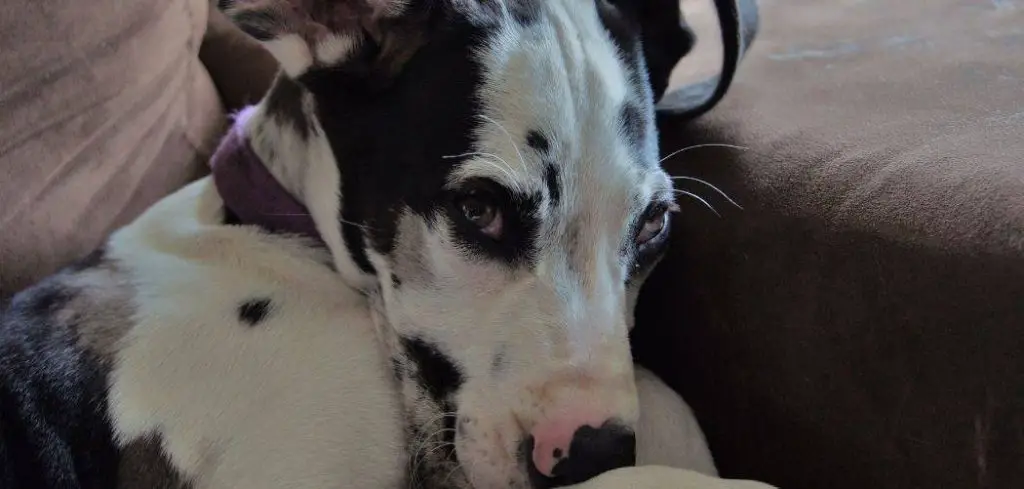If your dog is repeatedly licking their lips and refusing food, it may seem like a small issue at first—but it often signals something more serious. These subtle symptoms can indicate pain, nausea, anxiety, or an underlying medical problem.
We outline the common causes of dog licking lips and not eating, what you can do at home, and when to seek veterinary help.
Dog Licking Lips and Not Eating — Why It Happens
Licking the lips combined with appetite loss often points to nausea, dental pain, stress, or oral discomfort. This behavior is a classic sign of queasiness in dogs, and it may also be triggered by mouth injuries or dental disease.
Anxiety or unfamiliar smells can also cause lip licking. When this symptom shows up alongside not eating, it’s a clear signal that your dog may be experiencing discomfort that needs attention.

Common Causes of Dog Licking Lips and Not Eating
Nausea or Gastrointestinal Upset
Nausea is one of the most common reasons dogs lick their lips and skip meals.
It may be caused by eating something they shouldn’t, motion sickness, or early signs of more serious conditions like pancreatitis.
Other symptoms might include drooling, vomiting, gurgling stomach sounds, or grass eating.
Dogs may also seem restless or swallow repeatedly.
Dental Disease or Oral Injury
Pain in the mouth can make eating difficult and cause frequent licking.
Tartar buildup, gum disease, tooth abscesses, or injuries like cuts and ulcers can all trigger lip licking.
You might notice your dog favoring one side while chewing, dropping food, or avoiding dry kibble. A bad odor from the mouth is another clue.
Read more: Dog Not Eating and Drooling (Here’s what it could mean)
Anxiety or Stress
Dogs often lick their lips when feeling nervous or uneasy.
Stressful events like vet visits, thunderstorms, loud noises, or changes in routine can lead to both lip licking and loss of appetite.
Other signs of anxiety include panting, pacing, hiding, or trembling.
These behaviors may fade once the stressor is removed, or they may persist without support.
Foreign Object in the Mouth or Throat
A stuck object can cause irritation that leads to licking and food avoidance.
This could be a piece of bone, wood, or even a string caught between teeth or lodged in the throat.
Your dog might paw at their face, gag, cough, or have trouble swallowing.
Any suspicion of a lodged object should be treated as an emergency.
Toxin Exposure
Some toxins or medications may cause a bitter taste, nausea, or oral irritation.
Dogs exposed to cleaning products, certain plants, or chemicals may lick their lips repeatedly and stop eating.
You might also notice drooling, shaking, or vomiting. Quick action is critical if you think your dog ingested something dangerous.
What to Do If Your Dog Is Licking Lips and Not Eating
Start by checking your dog’s mouth for any visible sores, stuck objects, or gum swelling.
If nothing is obvious, try offering a bland meal like boiled chicken and rice.
Observe whether the licking subsides or if other symptoms appear, like vomiting or gagging. Make sure your dog has fresh water and a calm space to rest.
Minimize stress by keeping routines stable and avoiding loud noises or disruptions. If anxiety is suspected, comforting routines and calming aids may help.
Track how long the symptoms last—if your dog still isn’t eating after 24 hours, consult your veterinarian.
When to Call or Visit Your Vet
You should call your vet if your dog:
Refuses food for more than a day
Is excessively licking lips without stopping
Shows signs of pain when eating or yawning
Has vomiting, drooling, or diarrhea
Displays signs of poisoning or swallowed a foreign object
Timely evaluation is especially important when symptoms occur together. Lip licking may be subtle, but combined with appetite loss, it warrants a closer look.
Read more: Dog Shaking and Not Eating (Here’s why)
Key Takeaway
When your dog is licking their lips and not eating, it’s usually a sign that something’s wrong.
It may be nausea, dental pain, anxiety, or even a foreign object in the mouth.
While occasional lip licking isn’t a concern, repeated episodes with appetite loss should never be ignored.
Monitor closely, offer supportive care, and reach out to your vet if symptoms continue or worsen.
Your quick response could make all the difference in your dog’s comfort and recovery.
